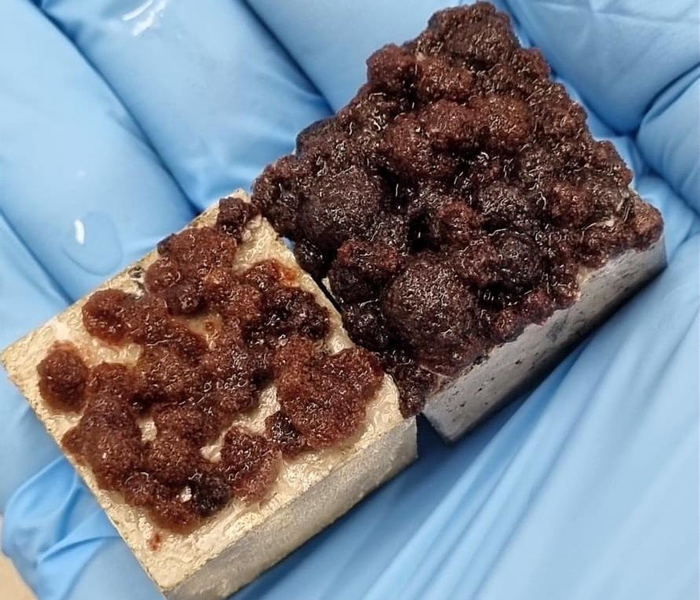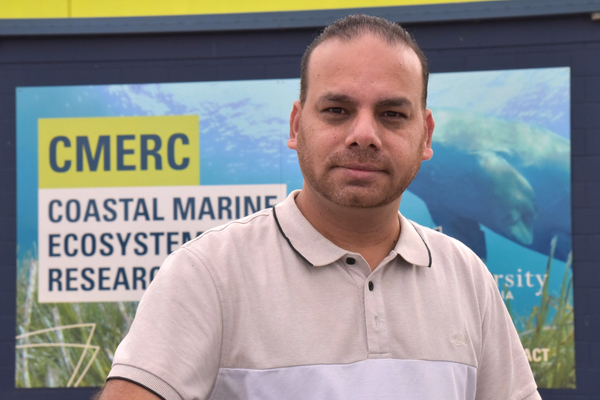Seaweed Farming on Low-Carbon Substrates

Description
A Japanese energy company has partnered with CQUniversity researchers to pioneer the use of a low-carbon concrete alternative in seaweed farming.
J-Power developed its ‘J Blue Concrete’ product from industrial by-products including coal ash and copper slag.
The product requires less CO2 to produce than traditional concrete and is also heavier, making it more resistant to waves and ocean currents and therefore suitable for use in seawalls and other marine structures.
Researchers from CQUniversity’s Coastal Marine Ecosystems Research Centre tested the product for its suitability as a seaweed substrate.
The research team led by Dr Manoj Kumar examined the settlement and survival of the methane-reducing red seaweed, Asparagopsis taxiformis on J-Blue Concrete against traditional concrete and glass.
Impact
Trials carried out in the CMERC laboratories revealed spore germination was up to 53% higher on J-Blue Concrete than glass and between 17-30% higher than normal concrete.
While most commercial seaweed farms use longline rope systems for cultivating seaweed for consumption, J-Power has deployed the J Blue Concrete product at several of its coastal sites to grow seaweed for carbon capture.
It was the first private sector company in Japan to obtain certification for ‘blue carbon’ credits using this practice.
This project not only demonstrates how a low-carbon product like J Blue Concrete can be used in place of traditional concrete to support seaweed attachment and growth but also holds promise for use in blue carbon farming as well as the restoration of marine habitats.
Together, CMERC and J-Power are laying the groundwork for a cleaner, greener future beneath the waves.
Partners
Dr Manoj Kumar - Project Lead

Dr Manoj Kumar is a Senior Research Fellow at the Coastal Marine Ecosystems Research Centre (CMERC) at CQUniversity. He has more than 15 years of experience in seaweed and seagrass aquaculture, ecophysiology, and molecular biology. Dr Kumar’s research activities are focused on the resilience of marine plants and algae including seaweeds, seagrasses and microalgae under global climate change. His recent research activities also include the development of sustainable tools for seaweed biomass processing for products including bioplastics, biofertilizers and biomaterials.
Sustainable Development Goals
At CQUniversity we are committed to embedding sustainable practice in our operations, interactions and relationships, underpinned by the United Nations Sustainable Development Goals. Sustainability is one of our strategic pillars within our Strategic Plan 2024-2028
This project aligns with the following SDG Goals:
13 – Climate Action
14 – Life Below Water
9 – Industry, Innovation and Infrastructure
